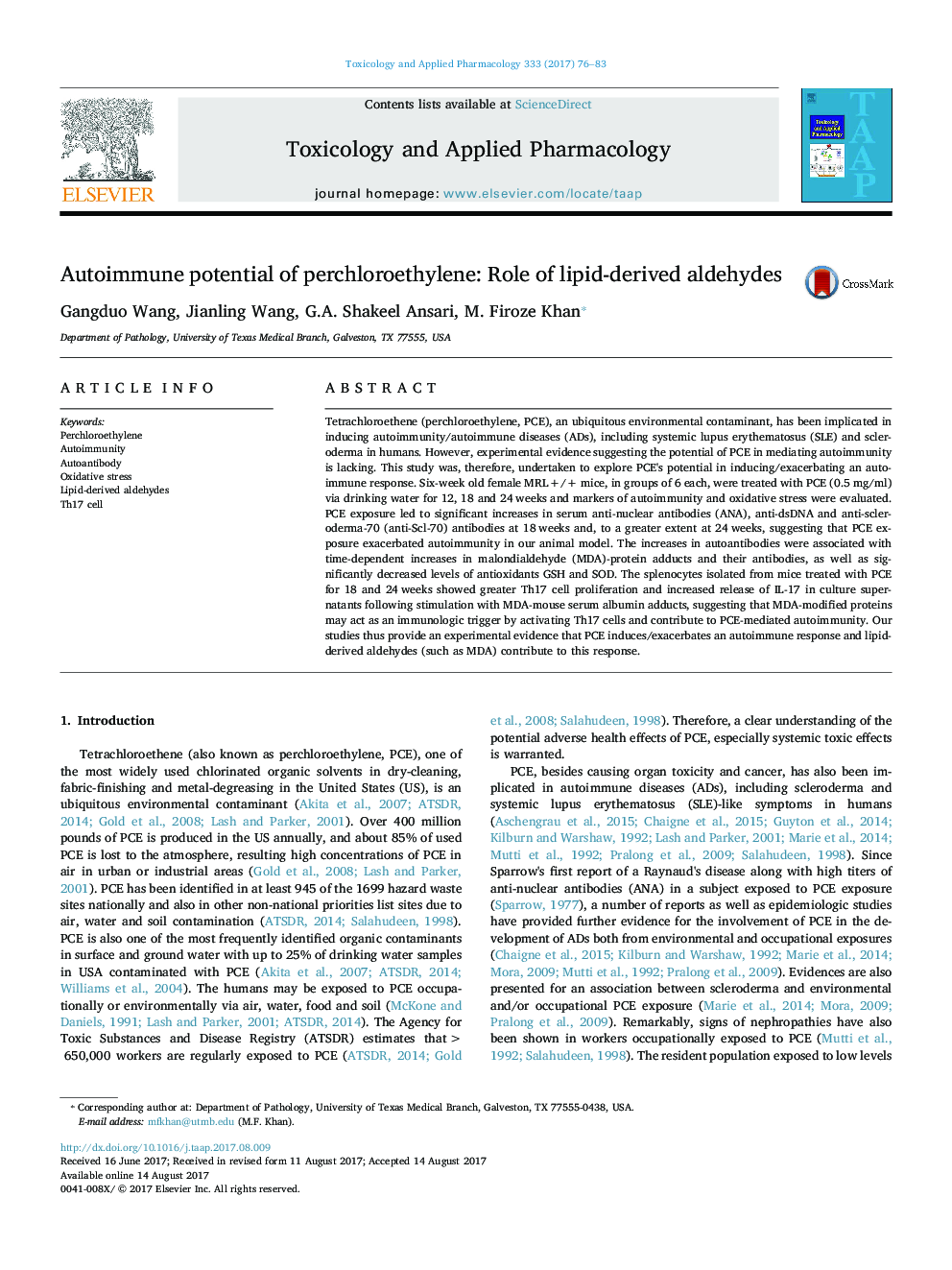| Article ID | Journal | Published Year | Pages | File Type |
|---|---|---|---|---|
| 5558232 | Toxicology and Applied Pharmacology | 2017 | 8 Pages |
â¢PCE induced/exacerbated an autoimmune response in MRL +/+ mice.â¢PCE led to increases in lipid-derived aldehyde (LDA)-protein adducts in MRL +/+ mice.â¢LDAs contribute to PCE-mediated autoimmunity via activating Th17 cells.
Tetrachloroethene (perchloroethylene, PCE), an ubiquitous environmental contaminant, has been implicated in inducing autoimmunity/autoimmune diseases (ADs), including systemic lupus erythematosus (SLE) and scleroderma in humans. However, experimental evidence suggesting the potential of PCE in mediating autoimmunity is lacking. This study was, therefore, undertaken to explore PCE's potential in inducing/exacerbating an autoimmune response. Six-week old female MRLÂ +/+ mice, in groups of 6 each, were treated with PCE (0.5Â mg/ml) via drinking water for 12, 18 and 24Â weeks and markers of autoimmunity and oxidative stress were evaluated. PCE exposure led to significant increases in serum anti-nuclear antibodies (ANA), anti-dsDNA and anti-scleroderma-70 (anti-Scl-70) antibodies at 18Â weeks and, to a greater extent at 24Â weeks, suggesting that PCE exposure exacerbated autoimmunity in our animal model. The increases in autoantibodies were associated with time-dependent increases in malondialdehyde (MDA)-protein adducts and their antibodies, as well as significantly decreased levels of antioxidants GSH and SOD. The splenocytes isolated from mice treated with PCE for 18 and 24Â weeks showed greater Th17 cell proliferation and increased release of IL-17 in culture supernatants following stimulation with MDA-mouse serum albumin adducts, suggesting that MDA-modified proteins may act as an immunologic trigger by activating Th17 cells and contribute to PCE-mediated autoimmunity. Our studies thus provide an experimental evidence that PCE induces/exacerbates an autoimmune response and lipid-derived aldehydes (such as MDA) contribute to this response.
